Search the Special Collections and Archives Portal
Search Results
Ford, Jean, 1929-1998
Nevada politician and women's advocate Imogene "Jean" Young was born in Miami, Oklahoma, on December 28, 1929, to Daisy Adelphia (Flook) and Clarence Nathan Young. She had one brother, Byron Young. Her family moved to Joplin, Missouri, where she attended kindergarten through high school. In 1951 she graduated from Southern Methodist University in Dallas, Texas with a B.A. in Sociology. After graduation she worked as a recreational therapist for the American Red Cross in military hospitals until 1955.
Person
Ham, Artemus W., Sr., 1892-1970
Artemus W. “Art” Ham Sr. (1892-1970) was a highly respected Las Vegas, Nevada attorney and a philanthropist who devoted his work towards the Las Vegas community as well as the development of the Las Vegas strip. Ham was also president of the Las Vegas Chamber of Commerce in 1929 and a recognized supporter to the University of Las Vegas, Nevada (UNLV). He became active in the city’s real estate and had faith in the future of Las Vegas.
Person
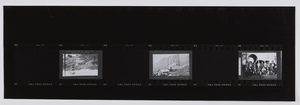
Film strip of individuals or Hoover Dam construction, image 012: photographic print
Date
Archival Collection
Description
Image
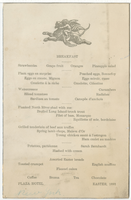
The Plaza Hotel, breakfast menu, Easter 1892
Date
Archival Collection
Description
Text
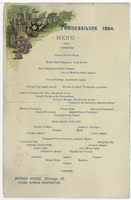
Thanksgiving menu, 1884, Briggs House
Date
Archival Collection
Description
Text
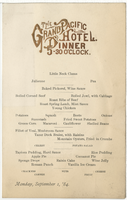
The Grand Pacific Hotel, dinner menu, Monday, September 1, 1884
Date
Archival Collection
Description
Text
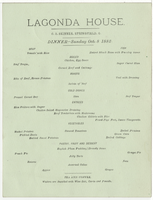
Lagonda House dinner menu, Sunday, October 8, 1882
Date
Archival Collection
Description
Text
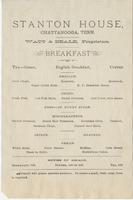
Stanton House breakfast menu
Date
Archival Collection
Description
Text

Christmas menu, 1884, Beebe House
Date
Archival Collection
Description
Text
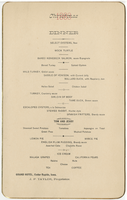
Christmas dinner menu, 1883, Grand Hotel
Date
Archival Collection
Description
Text
